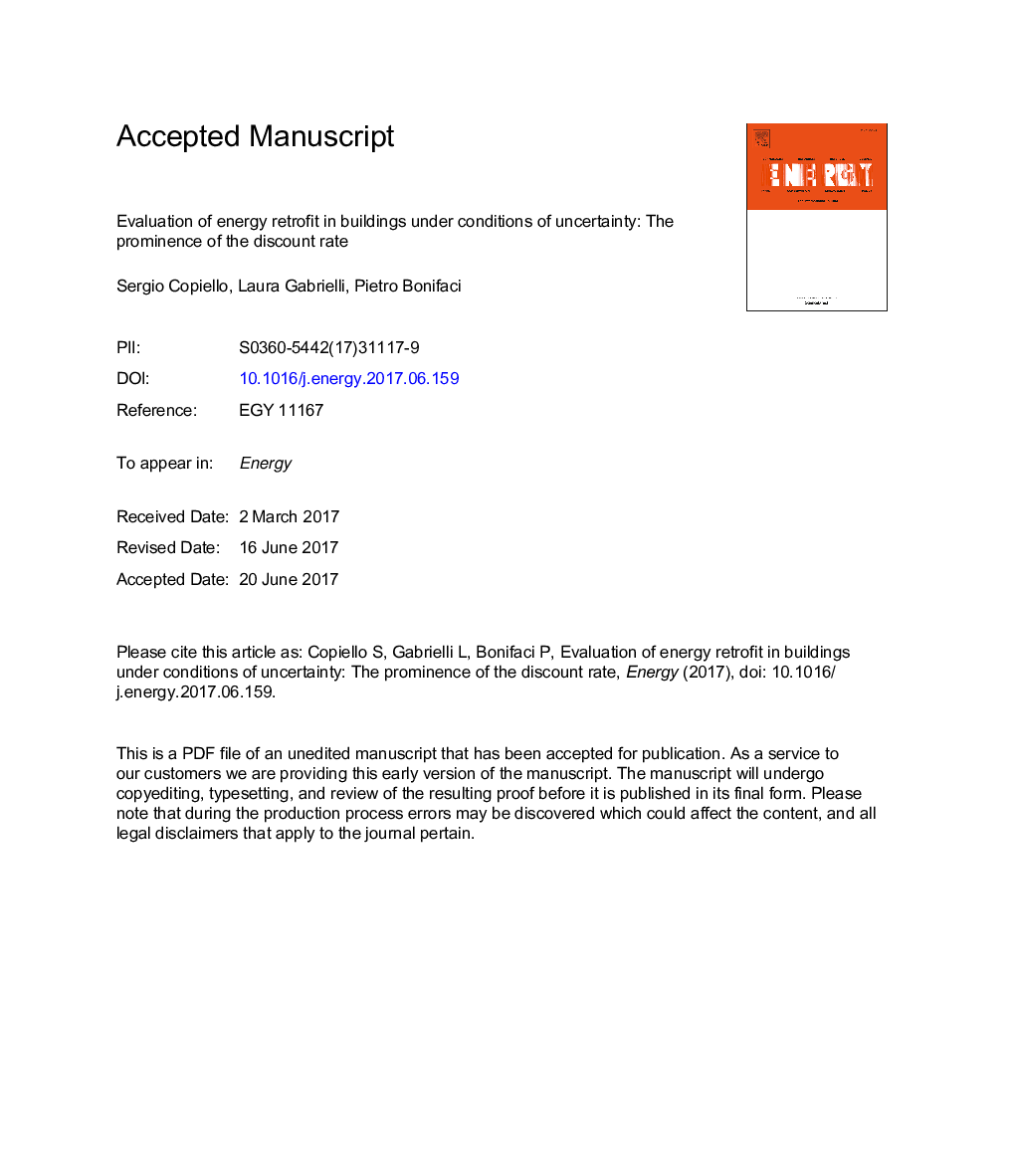| Article ID | Journal | Published Year | Pages | File Type |
|---|---|---|---|---|
| 5475741 | Energy | 2017 | 32 Pages |
Abstract
A growing literature has focused on the economic viability of energy retrofit in buildings. As regards the valuation tools, the Life-Cycle Cost (LCC) method has established itself among the leading approaches. The results are usually affected by a core of influential, uncertain parameters: energy supply cost and energy price changes. Monte Carlo (MC) simulation may be integrated with LCC analysis to deal with that uncertainty. In this study, we apply an LCC and MC-based analytical model to a case study. Several retrofit scenarios are defined to improve the poor energy performance of a public housing building. The less investment-intensive alternative enable to achieve a 27% energy saving in comparison to the building as is, while the more investment-intensive alternative allows reducing consumptions by about two-thirds. We find that the scenarios characterized by lower upfront costs are more likely to show lower LCCs, regardless of the energy price. The novelty of this study lies in the fact that we show the prominence of the discount rate, which is a remarkable source of additional uncertainty. We find that the discount rate affects the results four times as much as the energy price; therefore, its estimation is critical to the soundness of thermo-economic evaluations.
Keywords
Related Topics
Physical Sciences and Engineering
Energy
Energy (General)
Authors
Sergio Copiello, Laura Gabrielli, Pietro Bonifaci,
